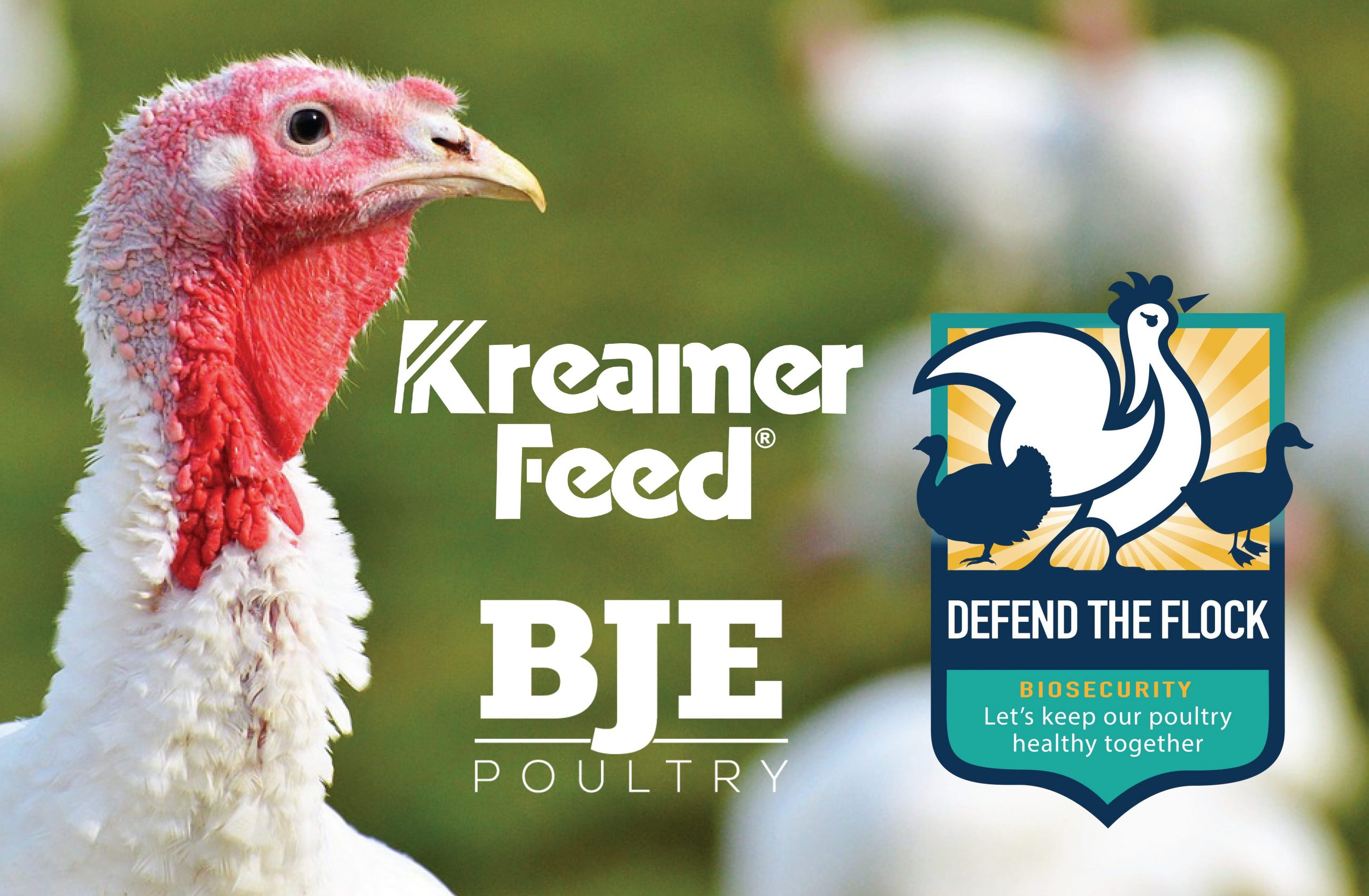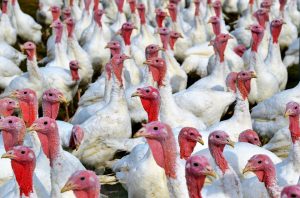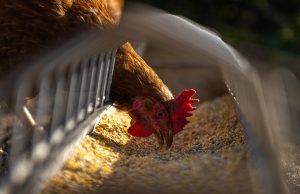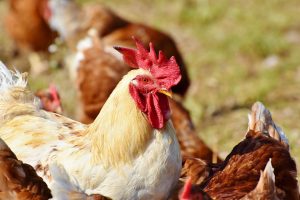
Avian Influenza:What You Need to Know

As always, Kreamer Feed, producer of Nature’s Best Organic Feeds, and its sister company BJE Poultry, will continue to adhere to the strict biosecurity plan already in place at the businesses. All trucks spray tires before entering farms and after leaving farms. Booties are used when walking around farms at all times as well as spraying boots and floor mats. Employees never enter farms unless given management permission and dressed in full biosecure gear. Feed and poultry catching/loading trucks and vehicles are fully washed on a regular schedule and always washed before coming back to the feed mill when in a “hot-spot” area, or coming from a port. Trucks coming into ingredient-receiving areas of our property are asked to spray tires before going across any scales, etc.
All employees and partners of our businesses have been trained and updated on biosecurity measures and signs of illness as our teams deliver feed, load and catch poultry, visit farms, processing facilities, travel for industry education, and enjoy their own commercial and backyard farms. Avian Influenza has come as close as Virginia and New York to our Pennsylvania facilities as of late February 2022, and we are doing everything in our power to keep our animals, our farmer’s livelihoods, and our businesses healthy. We greatly appreciate anything you can do to join us in our efforts.
USDA’s Defend the Flock
Biosecurity is the key to keeping our nation’s poultry healthy. USDA’s Defend the Flock education program offers free tools and resources to help everyone who works with or handles poultry follow proper biosecurity practices. These practices will help keep your birds healthy and reduce the risk of avian influenza and other infectious diseases. Biosecurity is everyone’s job. Become a Flock Defender today and help us protect all flocks!
One great resource Defend the Flock provides is a “Keep Your Flock Healthy Checklist,” which includes some of the following information:
(BJE Poultry has its own bio-security plan which has been provided to its individual growers).
– Wear personal protective equipment or clothing and shoes that you only use when caring for your poultry. This includes boot covers or boots that can be disinfected. Change into fresh protective gear between poultry houses or coops.
– Enclosures must be empty for a thorough cleaning. If you have a poultry house, wait until the house is empty to start the cleaning process. If you have a coop or other type of enclosure, move the birds to a separate area before cleaning.
– Only purchase or source poultry from NPIP-certified breeders, hatcheries, and dealers. When sourcing replacement poultry, you can request a copy of the hatchery or source farm’s biosecurity protocols.
– When purchasing poultry in person, check for signs of good health and approximate age. Do not purchase birds that appear old or unhealthy.
– Always transport replacement or new poultry in equipment and vehicles that are regularly cleaned, disinfected, and inspected. For commercial operations, the tractor/trailer carrying the birds should follow premises entry biosecurity protocols when entering the farm.
– Be sure to clean and disinfect tools, cages, and any other equipment used for transport. Return empty cages to the trailer and then clean and decontaminate the cages before taking them to another site.
– Wear site-specific clothing, including footwear, when loading or delivering poultry. For commercial operations, personnel loading poultry cages into the trailer should wear site-specific clothing or not enter the Line of Separation.
– Once home, quarantine the new additions for 30 days. Check for sneezing, coughing, nasal drainage, swollen eyes, mites, lice, and other health issues daily.
– Understand what poses a disease risk: it’s not just the wild birds and pests themselves. Feathers, nests, feces, and other organic materials can also carry disease. These items can come in contact with your flock through poultry enclosures, feed and water supplies, and even vehicles at your property.
– Check coops, pens, and poultry houses regularly for areas that allow birds to perch, nest, or enter. These include extended roof eaves, rooftop ventilation, overhead wires, torn screens, holes, and broken door openings. Concrete aprons around building walls deter burrowing animals.
– Sweep away old nests before nesting season—birds will return to the same nests year after year.
– Clean and disinfect poultry enclosures. This includes removing soiled litter and throwing it away. Sick birds can easily contaminate straw and other bedding.
– Don’t give wild birds, rodents, and insects a free lunch! Remove spilled or uneaten feed right away, and make sure feed storage units are secure and free of holes.
– Protect your flock’s water supply. Make sure wild birds, rodents, and other pests can’t access it. And if you can, use a municipal water supply or treated well water so you know it’s clean.
– Don’t walk through or drive trucks, tractors, or equipment in areas where waterfowl or other wildlife feces may be. If you can’t avoid this, clean your shoes, vehicle, and/or equipment thoroughly to prevent bringing disease agents back to your flock.
– Know the warning signs of poultry disease, like changes in how much your birds eat or drink, increased deaths in your flock, or general malaise.
There are many other tips to help maintain safe biosecurity measures on your commercial or backyard operation listed in the Defend Your Flock guidelines and checklists.


